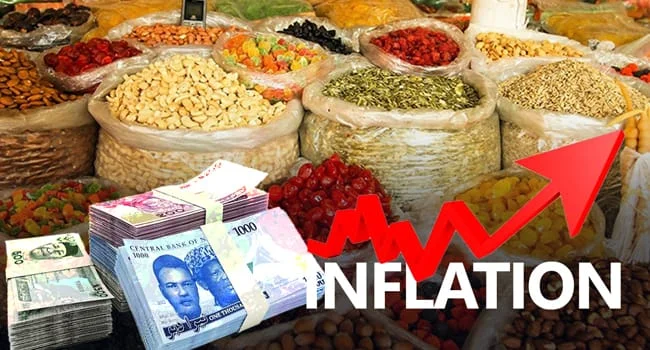Nigeria’s annual inflation rate experienced a notable decline in February 2025, easing to 23.18% from 24.48% in January, according to the National Bureau of Statistics (NBS). This marks the second consecutive month of decreasing inflation following a comprehensive data overhaul by the NBS, which updated the base year for its Consumer Price Index (CPI) to 2024 from 2009.
The reduction in the inflation rate is primarily attributed to decreases in food prices and logistics costs. The NBS report highlighted that average prices of staple food items such as yam tubers, potatoes, soybeans, maize flour, cornmeal, cassava, and dried bambara beans saw a decline compared to the previous month.
Additionally, a stable naira and lower fuel costs have contributed to easing inflationary pressures. Analysts note that the recent decline in headline inflation can be linked to the stability of the naira and a reduction in fuel costs, which have positively impacted the overall cost of living.
Food Inflation: The food inflation rate decreased to 23.51% year-on-year in February, down from 26.08% in January.
Urban Inflation: The urban inflation rate was 25.15% year-on-year in February, a decrease from 33.66% recorded in February 2024. On a month-on-month basis, the urban inflation rate stood at 2.40% in February.
Rural Inflation: The rural inflation rate was 19.89% year-on-year in February.
The NBS’s recent rebasing of the CPI to reflect current consumption patterns has led to a more accurate representation of inflation trends. Prior to the rebasing, inflation stood at 34.80% in December 2024. Experts have commended this move, noting that the new methodology and composition are more reflective of the nation’s economic dynamics.
Monetary Policy Considerations
In light of the declining inflation rate, the Central Bank of Nigeria (CBN) maintained its key interest rate at 27.5% during its first rate-setting meeting of the year. This decision follows six rate hikes in the previous year aimed at addressing rising inflation. The CBN anticipates a gradual decrease in inflation, targeting a single-digit rate in the long term.
The continued decline in Nigeria’s inflation rate suggests a positive trajectory for the nation’s economy, with stable food prices and logistics costs playing a significant role in this downward trend.
